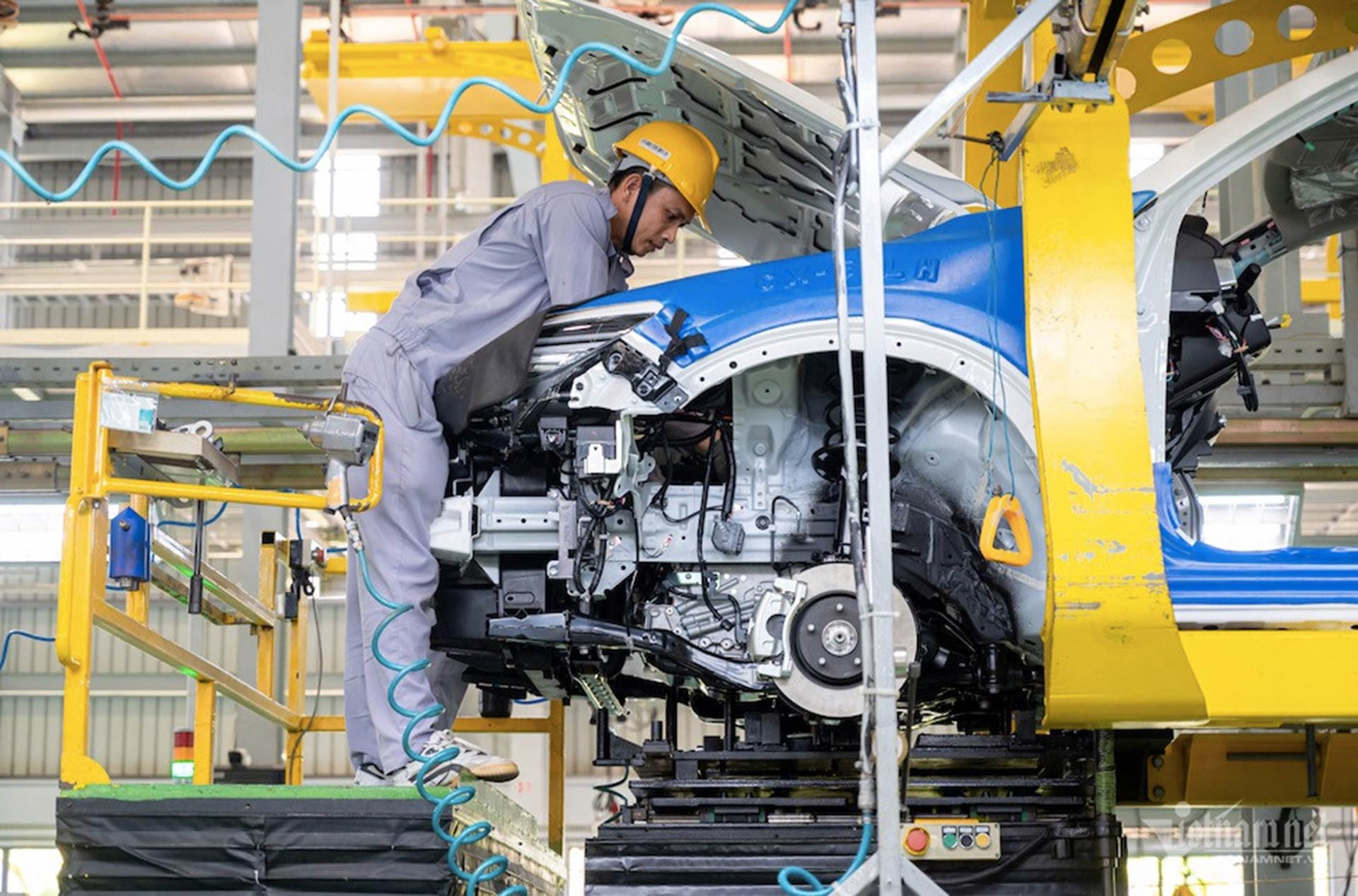
MOF has sent a dispatch to ministries, branches and relevant agencies about cutting the vehicle registration tax for the period from August 1, 2024 to the end of January 31, 2025.
MOF said that the tax cut, if approved, may affect Vietnam’s efforts to implement international commitments and agreements of which Vietnam is a signatory.
In principle, the same policies on taxes, fees and charges are applied to both domestically made products and imports.
The 50 percent tax cut applied to domestically assembled cars is feared to affect Vietnam’s national treatment principle within the framework of WTO (the World Trade Organization) and FTAs (free trade agreements).
According to MOF, when applying the 50 percent vehicle registration tax cut to domestically assembled products in accordance with Decree 70 released in 2020, Decree 103 in 2021 and Decree 41 in 2023, the countries which had cars exported to Vietnam claimed Vietnam’s discriminatory treatment between domestically made and imported automobiles, saying that the treatment violated WTO rules.
Foreign partners then requested to meet MOF leaders to discuss the issue.
The policy was also mentioned by the WTO Secretariat during the process of checking WTO trade policies for the second time in 2021.
According to the ministries of Foreign Affairs (MOFA), Industry and Trade (MOIT) and Planning and Investment (MPI), no country has filed a lawsuit against Vietnam’s vehicle registration tax cut policy.
However, MOF said Vietnam recently received questions asking for policy explanations about the different tax rates applied to domestically assembled automobiles and imported cars from countries which didn’t carry out production and assembly activities in Vietnam.
MOF replied that the measure was applied to help domestic automobile manufacturers overcome difficulties arisen after the Covid-19 pandemic. The tax cut was just a temporary solution and would terminate after six months (December 2023).
The ministry emphasized that since joining WTO, Vietnam had never issued a similar policy until this latest decision.
If Vietnam extends the application of the policy, MOF warned that measures may be considered as breaking commitments on treating goods between countries. This case is not a dispute between investors and a country. In other words, complaints and petitions may be raised, but the situation won’t be too serious. The complaints, if they are made, will just aim at stopping the policy applied.
In fact, when cutting vehicle registration tax, Vietnam only received the request to explain policies when there is discriminatory treatment between domestically made products and imports.
Meanwhile, some experts have warned that the tax cut, if approved, would help boost sales of gasoline-run automobiles, which means that Vietnam would go against its policy on green means of transport.
This was also mentioned in The Vietnam Energy Outlook Report - Pathways to Net Zero, released by the Ministry of Investment and Trade's Electricity and Renewable Energy Authority, the Danish Energy Agency (DEA) and the Danish Embassy in Vietnam.
In the report, researchers described several scenarios related to green transport. Large cities in Vietnam are facing alarmingly high air pollution which can have adverse impact on the health of the community. Transport and other business fields all have contributed to create the situation.
The standards on higher performance, fine dust filtration and electrification, together with other solutions, can minimize the impact.
Meanwhile, the green transport strategy set by the Prime Minister's Decision 876, has set important criteria to develop the transport sector and strive for net-zero emissions by 2050. The criteria include an increase in the proportion of electric vehicles and green energy vehicles, starting in 2025, and development of public means of transport in large cities.
The researchers have recommended that Vietnam quickly electrify light means of transport and use renewable energy in heavy transport segments in order to mitigate the costs to the climate and environment.
Pham Chi Lan, a respected expert, referring to air pollution in Hanoi and HCM City, blamed pollution on transport. She called on the government and community to join forces to develop green vehicles.
“Why doesn’t the government set a roadmap that specifies when all public vehicles must use green energy?” she said.
Luong Bang - Hanh Nguyen